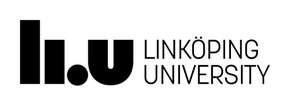Computational Social Science

The programme’s quantitative methods training will help you harness complex data and use them to explore social theories and fundamental questions about human societies. The programme’s theoretical and substantive training will introduce you to the principles of social inquiry and theories of human behaviour, and help you apply your technical skills to pressing social issues such as ethnic segregation in schools, income inequality, entrepreneur- ship, political change, and cultural diffusion.
During your first year you gain perspectives on the philosophy of social science, primers in the science of human decision-making, and frameworks for connecting individual behaviours to outcomes in social systems. You will also learn to apply advanced computational methods–including discrete choice modelling, social network analysis, agent-based simulation, and machine learning—to draw inferences about micro-level behaviours and macro-level outcomes.
With these building blocks in hand, you spend the third semester assembling critical knowledge of key theories and contemporary research in areas relevant to academic social science, government, and industry. During the third semester, you also have the option to study abroad at a partner institution.
In the final semester, you integrate the knowledge, skills, and theoretical approaches garnered in the first three semesters by writing a master’s thesis. As part of your thesis you conduct your own, original, computational research addressing a social scientific topic of your choosing.
Na studia magisterskie mogą kandydować wszyscy, którzy ukończyli studia licencjackie lub inżynierskie (studia I stopnia), studia magisterskie lub studiują na ostatnim roku studiów I-stopnia. Studia, które planujesz powinny mieć zbliżony profil do tych obecnych lub ukończonych, ponieważ w procesie rekrutacji kluczowa jest ich zgodność programowa.
- Wykaz punktów ECTS – osoby, które są jeszcze w trakcie studiów, muszą załączyć wypis punktów ECTS, w którym będzie wykazane, jakie przedmioty były realizowane na studiach oraz ile punktów za nie otrzymano.
- Dyplom ukończenia studiów licencjackich lub inżynierskich – jeśli jesteś absolwentem wyższej uczelni, nie potrzebujesz wypisu, wystarczy załączyć dyplom ukończenia studiów wraz z suplementem (oryginał z tłumaczeniem przysięgłym)
Spełnienie wymagań w zakresie języka angielskiego można udokumentować w następujący sposób:
- IELTS - 6.5 (minimum 5.5 z każdej części) lub
- TOEFL – 90 (w tym minimum 20 z pisania). Wynik musi zostać przesłany na uczelnię bezpośrednio z centrum egzaminacyjnego.
*Wymagania językowe mogą się zmieniać i różnić w zależności od kierunku - przed aplikacją sprawdź wymagania bezpośrednio na stronie uczelni.
- Bachelor's degree within one of the following subject areas:
- humanities
- cultural studies
- social sciences
- behavioural sciences
- natural sciences
- computer sciences
- engineering-sciences
- or equivalent
- Selection will be based on academic merits. Each applicant is encouraged to submit a Letter of Intent in order to provide us with more information about their qualifications and how they will contribute to/benefit from the programme. If applicants hold a degree that does not include a bachelor’s essay or project, their Letter of Intent should describe previous studies and any academic activities that are related to the master’s programme or the programmes applied for.
